UP Board Class 12 Physics Question Paper 2025 PDF (Code 346 JV) is available for download here. The Mathematics exam was conducted on March 6, 2025 in the Morning Shift from 2:00 PM to 5:15 PM. The total marks for the theory paper are 100. Students reported the paper to be easy to moderate.
UP Board Class 12 Physics Question Paper 2025 (Code 346 JV) with Solutions
| UP Board Class Physics Question Paper with Answer Key | Check Solutions |

Charge on a piece of metal is \(-3.2\) coulomb. Number of excess electrons in the metal is:
To measure potential difference from a galvanometer, we connect in it:
In electromagnetic waves, phase difference between electric and magnetic field vectors is:
Prism angle of a prism is \(A\) and angle of minimum deviation is equal to prism angle. Refractive index of the material of prism will be:
The unit of magnetic dipole moment is
Threshold wavelength for a metal surface is 2000 \AA. On incidence of radiation of 1000 \AA, the kinetic energy of emitted photoelectrons will be
Write the unit of electric flux.
Define electromotive force of a cell.
Self-inductance of a coil is 6 mH and the rate of flow of current in it is \(10^3\) A/s. Find the induced emf produced in the coil.
Mention the major drawbacks of Rutherford's atomic model.
Temperature of a pure semiconductor is \(0\ \mathrm{K}\). Comment on its conductivity.
In a single-slit diffraction pattern, the angle of diffraction for the second minimum is \(60^\circ\). Find the width of the slit in terms of \(\lambda\).
Four capacitors of equal capacity are connected in series with a battery of 20 V. The middle point O is earthed. Calculate the potential at points P and Q.

State and prove Ampere's circuital law.
Explain the meaning of polarisation of light and show the difference between polarised and unpolarised light with the help of a suitable diagram.
Draw a circuit diagram to obtain characteristic curve in forward bias of p-n junction diode. Mention the effect of forward bias on depletion layer of the junction.
Energy of electron in the \(n\)th orbit of hydrogen atom is \( E_n = \frac{-13.6}{n^2} \, eV \). Draw the energy level diagram for hydrogen atom and show the transition for lines of Balmer and Paschen series.
Derive Lens Maker's formula for a thin lens. Mention the effect of the refractive index and radius of curvature of the curved surfaces on the focal length of the lens.
Write Kirchhoff’s law for electrical circuits. In the given balanced Wheatstone bridge, find the potential at points B and D and the values of current \(i_1\) and \(i_2\).

Write down Biot-Savart law and find the expression for the magnetic field produced by a current-carrying conductor of infinite length, on the basis of it.
Describe a series L, C, R resonant circuit.
Define electric dipole and give the formula for its dipole moment. Find the expression of torque acting on an electric dipole placed in a uniform electric field.
What are matter waves? Explain. Write the formula for de Broglie wavelength. Write the name of the experiment which shows the dual nature of particles.
Explain the meaning of binding energy of a nucleus. In the nuclear reaction \(\ ^3Li^6 + \ ^0n^1 \longrightarrow \ ^2He^4 + \ ^1H^3 \), calculate the energy released in joules. Mass of \( \ ^3Li^6 = 6.015126~u \), Mass of \( \ ^2He^4 = 4.002604~u \), Mass of \( \ ^1H^3 = 3.016049~u \), Mass of \( \ ^0n^1 = 1.008665~u \), and 1u = 931 MeV.
Define drift velocity and mobility of electrons in a metallic conductor. The length of a conducting rod is 1 m and the potential difference between its ends is 4 volt. Electron density in the conductor is \( 5 \times 10^{24}~m^{-3} \) and its resistivity is \( 50 \times 10^{-8}~\Omega\)-m. Calculate the drift velocity of the electrons in the metal.
With the help of a suitable ray diagram, derive the formula \( \frac{1}{v} + \frac{1}{u} = \frac{1}{f} \) for a concave mirror.
Write Huygens' principle of secondary wavelets and explain the laws of refraction of light on its basis.
Explain the difference between interference and diffraction of light. Write the expression for the width of interference fringes in Young's double slit experiment and explain the effect of separation of slits and wavelength of light used on it.
Which nature of light is supported by the phenomenon of photoelectric effect? Write Einstein's equation related to photoelectric emission and briefly explain the laws of photoelectric emission on its basis.
What is the meaning of nucleon? What is the mass number of nucleus? Write down the relation between mass number and radius of nucleus and show that the density of nucleus does not depend on mass number.
On which principle does the transformer work? What are step-up and step-down transformers? Mention two main losses occurring in transformers. In an ideal transformer, the ratio of turns in primary and secondary coils is 10 : 1. Supply in primary is of 220 V and secondary is connected with a resistance of 220 \(\Omega\). Find the value of current flowing in the primary.
What is an electrical capacitor? Find the expression for the capacity of a parallel plate capacitor. On which factors does the capacitance depend?
What are electromagnetic waves? Give a brief description of the main properties of electromagnetic waves. The equation for oscillation of the magnetic field of an electromagnetic wave is \( B_y = 8 \times 10^{-6} \sin \left( 2 \times 10^{11} t + 300 \pi x \right)~T \). Find the wavelength and equation for the oscillating electric field. Mention the direction of propagation of the wave also.
Explain the meaning of rectification. Using a p-n junction diode, draw a circuit diagram of a full-wave rectifier and give a brief description of its working. Give a graphical representation of input and output voltage/current.
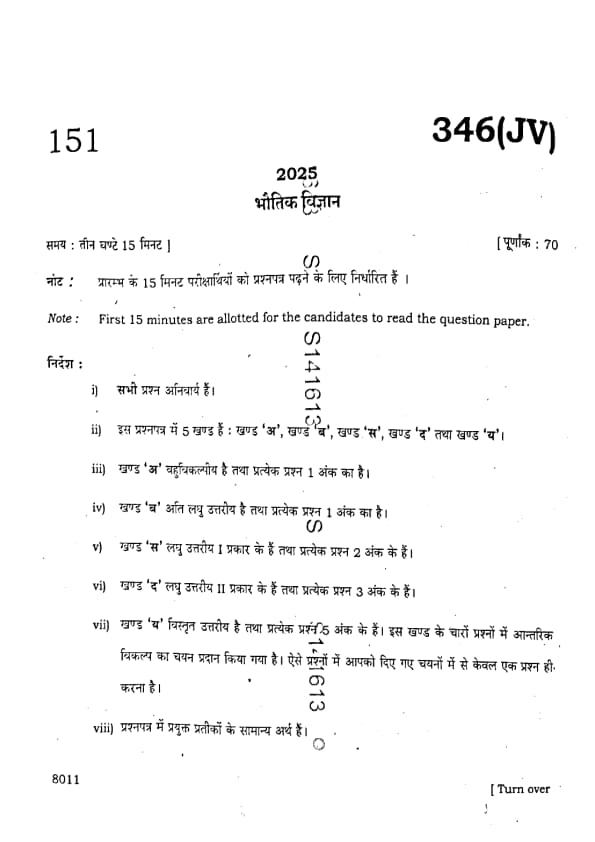
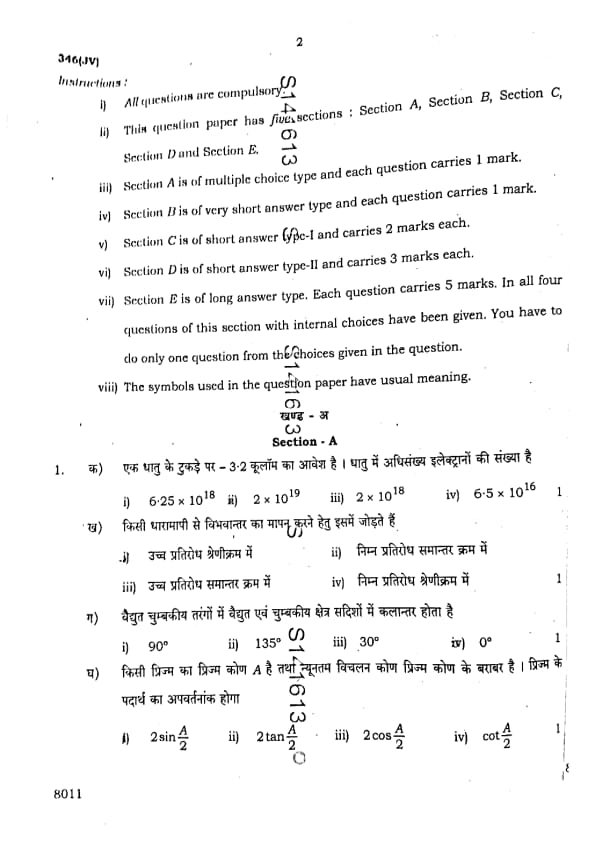
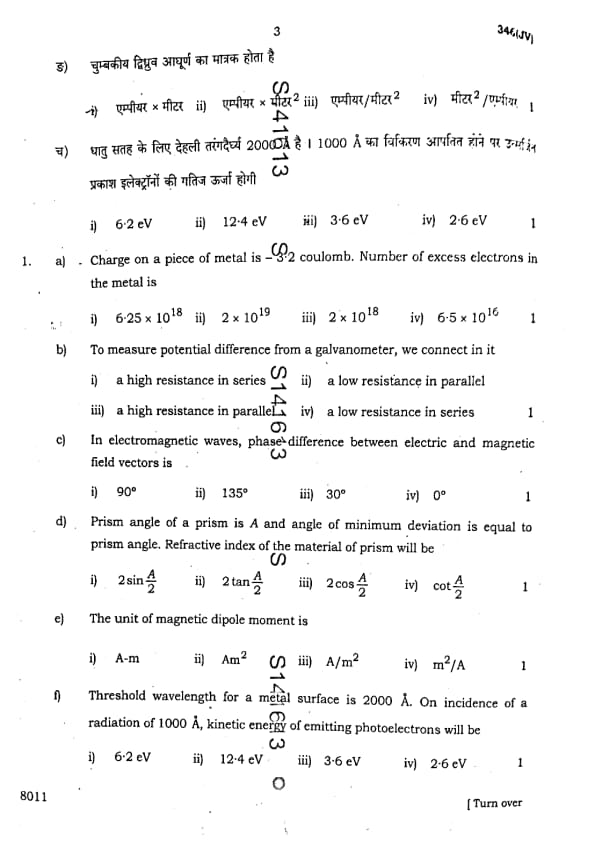
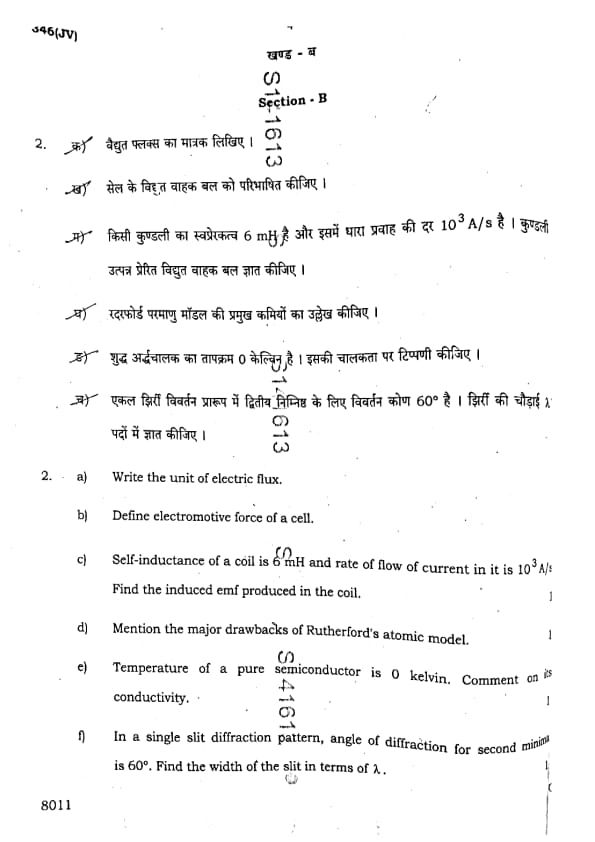
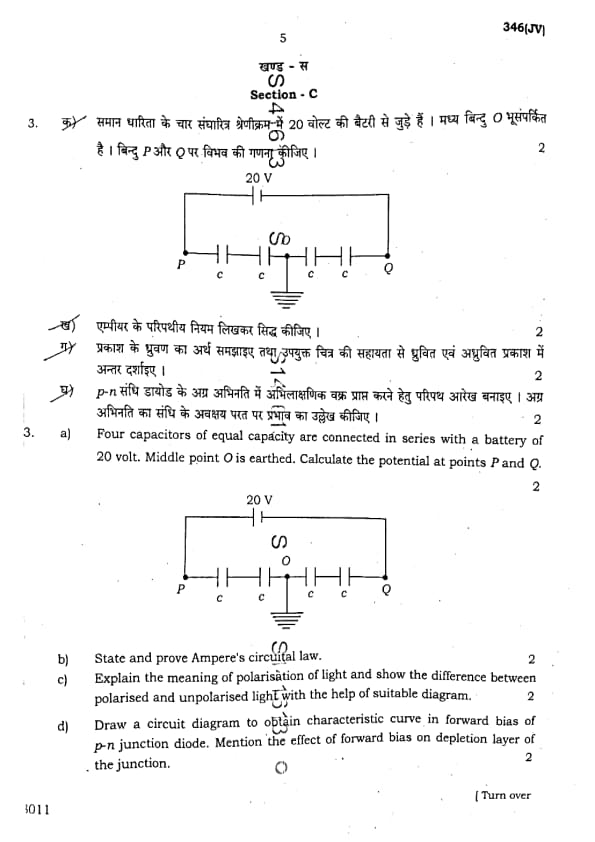
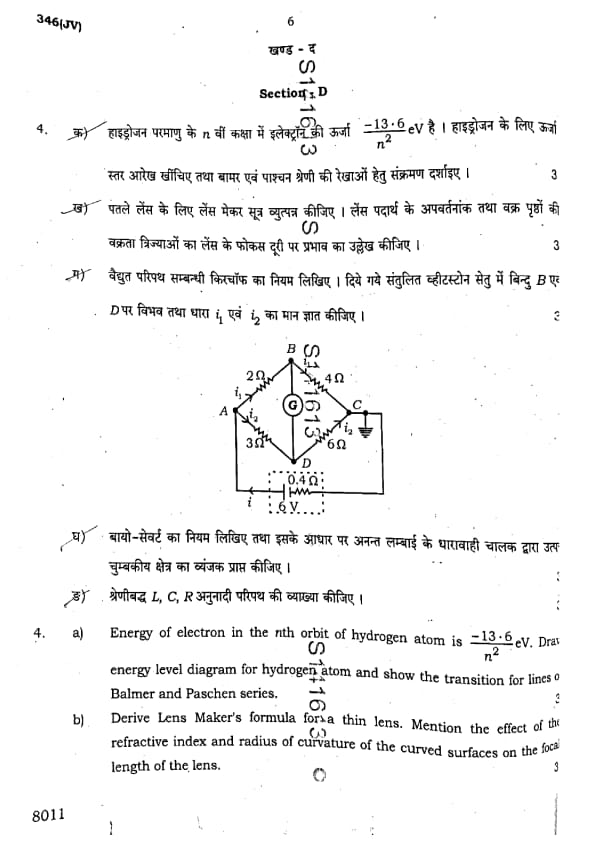
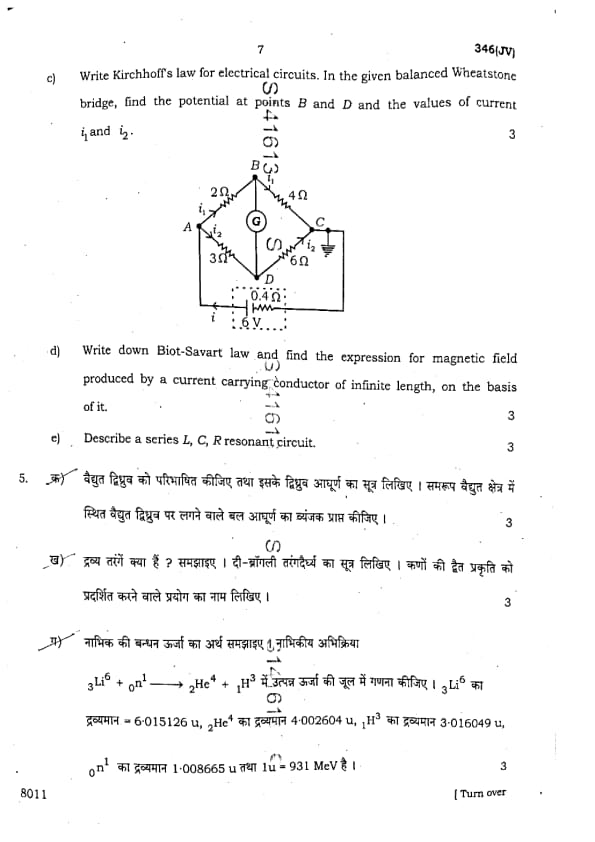
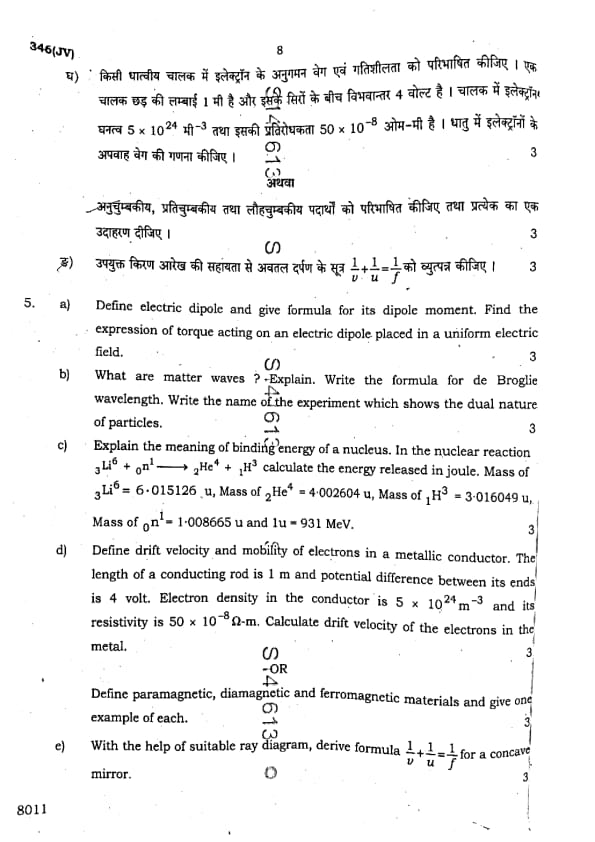
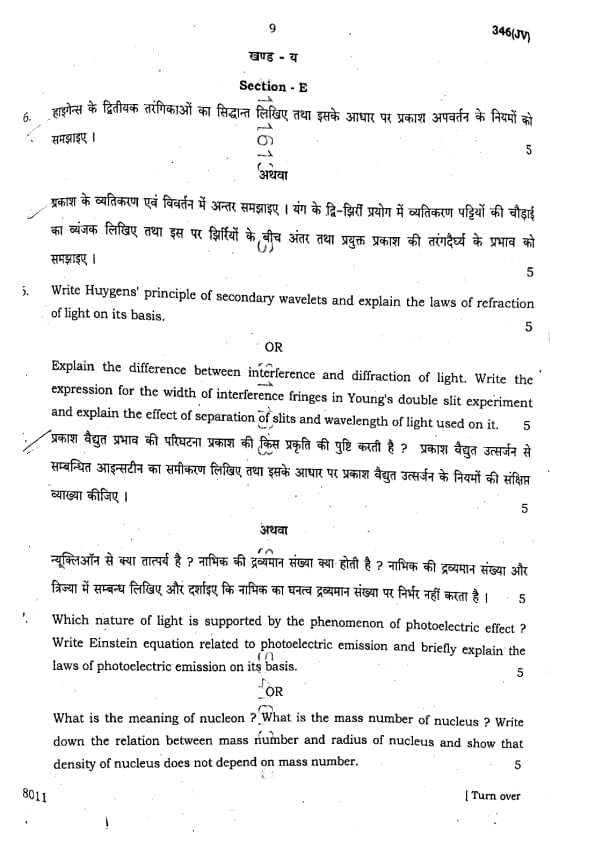
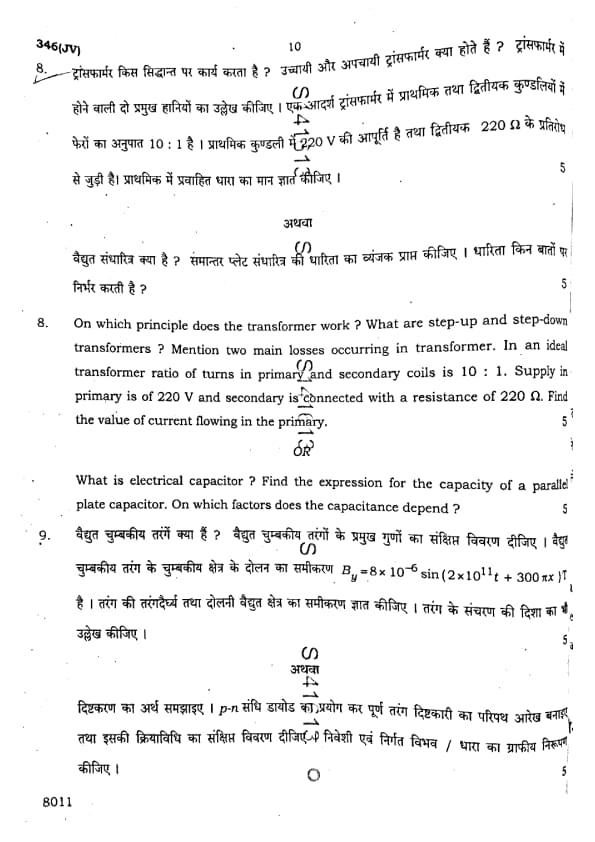
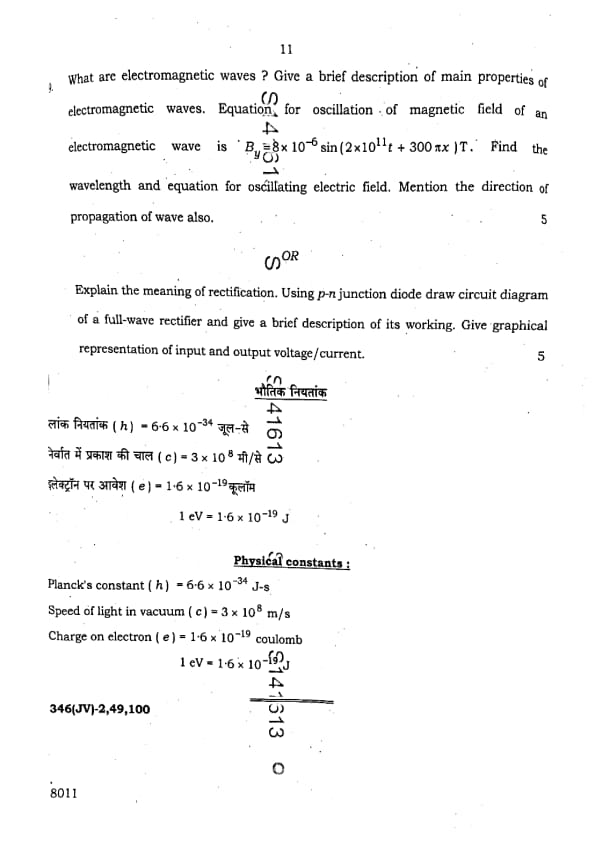



Comments